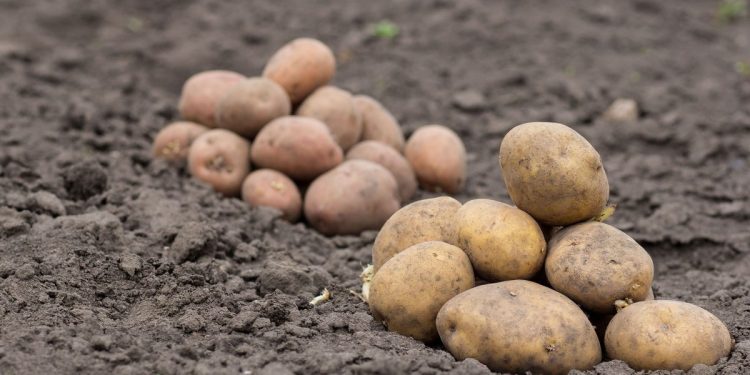#Agriculture #PotatoIndustry #Imports #PestControl #MarketDynamics #AgriculturalEconomics #Mexico #UnitedStates #Farming #AgriculturalPolicy #IndustryChallenges
In Mexico, the national potato production is encountering stiff competition from imported potatoes originating from the United States. Linked to the sector, figures like entrepreneur Roberto Garza estimate a 10% loss in the market, raising concerns about potential pest-related damages and other adverse effects.
The potato production in Mexico not only grapples with limited governmental support and challenges in increasing investments for better infrastructure and pest control but since mid-2023, it has also faced rising imports from the United States.
According to Roberto Garza Villarreal, the CEO of Agropecuaria El Arranque, the American tuber has emerged as a significant threat to Mexican producers since mid-last year.
He noted that US producers receive substantial subsidies, coupled with access to plentiful water resources, making their lands more productive.
However, he warned that these potatoes come with quarantine pests and diseases not present in Mexico, compounded by the fact that they can also be used as seed potatoes.
“It’s a matter that the current federal government allowed due to inflation or the pandemic, but it can have a severe impact on agriculture in general, as the diseases carried by American potatoes can affect not only domestic potatoes but also tomatoes, peppers, and all similar crops,” remarked Garza.
Garza emphasized that although it was only mid-last year when American potatoes entered the country, they now hold a significant 10% share of the market.
“I believe that over time, they will push us out,” he added.
He stated that there was no immediate price impact in 2023. Still, today, Mexican potatoes are sold in self-service stores for MXN 29 (USD 1.7) per kilogram (while national producers sell it for MXN 10 or 14 (USD 0.42 or 0.82), and American potatoes are sold for MXN 14 (USD 0.82), as they do not have as much markup.
Ultimately, despite self-service stores selling Mexican potatoes at twice the price they buy from national producers, Garza emphasized that there is nothing they can do as these are market conditions.
Recognizing Achievement
Following his participation in PepsiCo Foods Mexico’s Annual Sales Convention, Roberto Garza Villarreal mentioned being invited as a farmer for the first time in 20 years.
With operations spanning from San Rafael, Nuevo León, to Huachichil in the mountainous area of Saltillo, Agropecuaria El Arranque covers 320 hectares, with 70% of potato production going to Sabritas.
He added that the harvest takes place between September to December, generating 300 jobs, while the peak production nationally occurs from February to May.
Garza Villarreal mentioned their 10-year tenure as Sabritas suppliers, highlighting their significance not only regionally but nationally, addressing PepsiCo’s influence on national agriculture due to the quality standards it upholds.
The influx of American potatoes into Mexico presents a significant challenge to the local potato industry, impacting both market dynamics and potential risks of pest infestations. While concerns loom over the future of domestic producers, collaboration between industry stakeholders and governmental support may be crucial in navigating these challenges and ensuring the resilience of Mexico’s agricultural sector.







